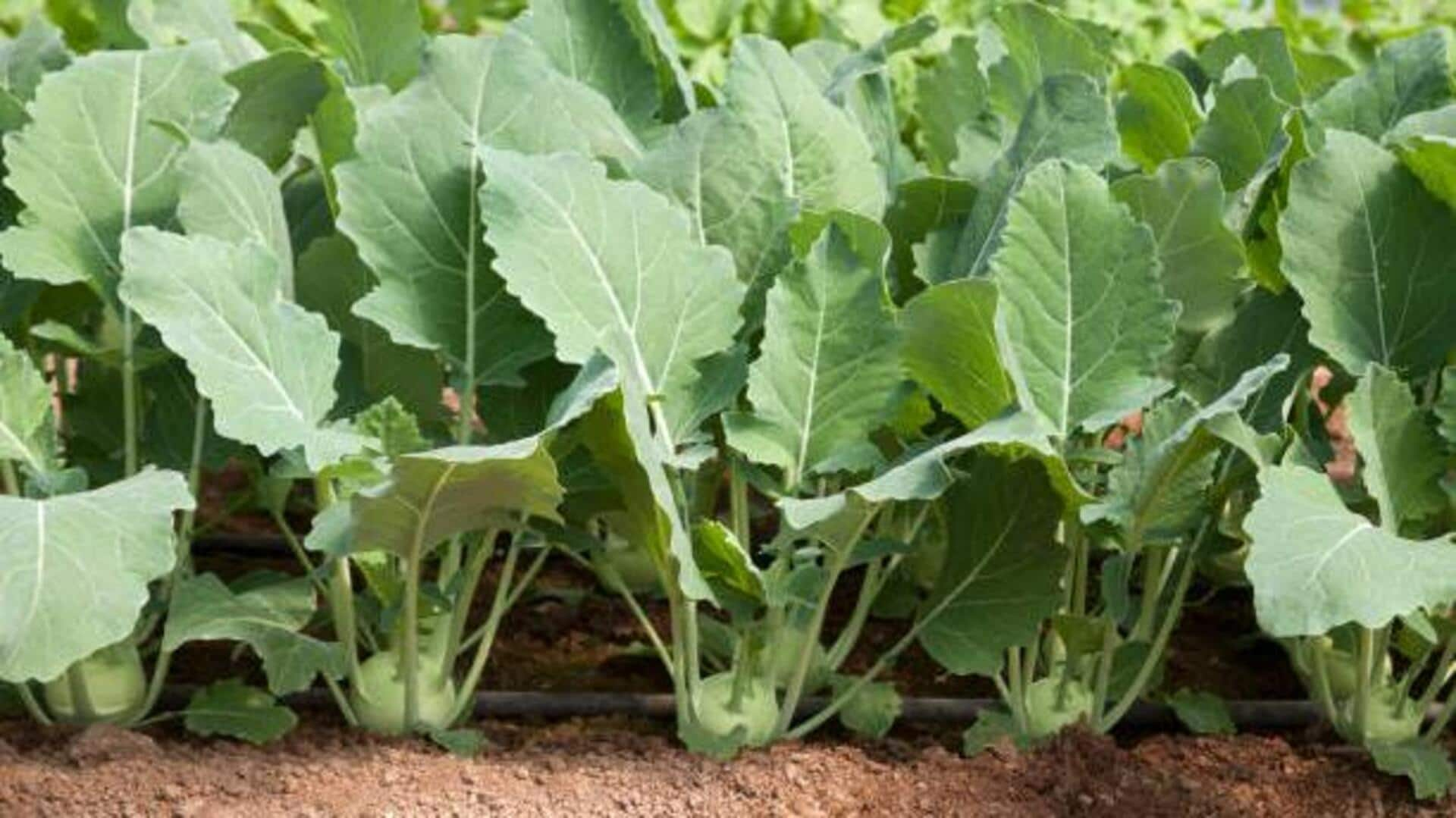
How to turn kohlrabi leaves into organic fertilizer
What's the story
Kohlrabi leaves, which are usually thrown away as waste, can be converted into eco-friendly plant fertilizers.
This sustainable practice not only cuts down on waste but also nourishes the soil with necessary nutrients.
By converting these leaves into fertilizers, gardeners and farmers can play a part in creating a more sustainable environment while promoting plant growth.
The process is simple and inexpensive, hence suitable for anyone looking to do organic gardening or farming.
Composting
Composting kohlrabi leaves
Last but not least, composting is a great way to turn kohlrabi leaves into nutrient-rich fertilizer.
Simply, collect the leaves and mix them with other organic materials, such as vegetable scraps and grass clippings.
Maintain the moisture of the compost pile and keep it aerated by turning it regularly.
With time, microorganisms will decompose the materials, resulting in a rich compost to nourish plants.
Liquid fertilizer
Creating liquid fertilizer from leaves
Another way to use kohlrabi leaves is to make a liquid fertilizer.
Chop the leaves finely and soak them in water for a few days until they decompose partially.
Strain the mixture to remove solids leaving behind a nutrient-rich liquid that can be diluted with water before applying it to plants.
This liquid fertilizer gives a quick nutrient boost for growing plants.
Mulching
Mulching with kohlrabi leaves
Mulching is all about spreading chopped kohlrabi leaves around plants as a protective layer over the soil.
It helps retain moisture, suppress weeds, and gradually adds nutrients back into the soil as the leaves decompose naturally over time.
Plus, it's an easy way to recycle garden waste while benefiting plant health.
Vermicomposting
Vermicomposting with kohlrabi leaves
Vermicomposting utilizes worms to decompose organic matter such as kohlrabi leaves into high-grade compost, referred to as worm castings or vermicast.
Toss in chopped kohlrabi leaves with other kitchen scraps into a worm bin filled with red worms or earthworms.
They will eat these scraps, producing nutrient-dense castings that are perfect for enriching garden beds or potted plants.